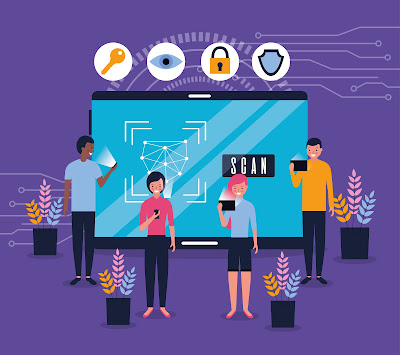Artificial intelligence (AI) and machine learning (ML) have become integral components of numerous industries, revolutionizing the way businesses operate and interact with their customers. Runway AI, a leading platform in AI development, offers a plethora of use cases across various sectors. Runway AI's capabilities are vast and diverse, from enhancing productivity to enabling innovative solutions. In this article, we delve into the use cases for Runway AI across different industries and examine its impact on artificial intelligence development companies and machine learning development companies.
Healthcare Industry: Runway AI is making significant strides in the healthcare sector by improving diagnostic accuracy, streamlining administrative processes, and enabling personalized treatment plans. In diagnostics, AI algorithms developed on the Runway platform can analyze medical images such as X-rays, MRIs, and CT scans to detect anomalies and assist radiologists in making more accurate diagnoses. Additionally, Runway AI facilitates predictive analytics for identifying patients at risk of developing certain conditions, thereby enabling early intervention and preventive care measures.
Financial Services: In the financial industry, Runway AI is transforming operations by automating tasks, detecting fraudulent activities, and optimizing investment strategies. AI-powered chatbots developed using Runway's platform can provide customer support, process transactions, and offer personalized financial advice based on individual preferences and spending patterns. Moreover, machine learning algorithms can analyze vast amounts of financial data to identify potential market trends and investment opportunities, empowering financial institutions to make informed decisions.
Retail and E-commerce: Runway AI is reshaping the retail landscape by enhancing the customer shopping experience, optimizing inventory management, and enabling targeted marketing campaigns. AI-powered recommendation systems developed on the Runway platform can analyze customer preferences and purchasing behavior to provide personalized product recommendations, increasing sales and customer satisfaction. Furthermore, Runway AI enables retailers to forecast demand, optimize pricing strategies, and automate supply chain processes, leading to improved efficiency and profitability.
Manufacturing and Supply Chain: In the manufacturing sector, Runway AI is driving innovation through predictive maintenance, quality control, and supply chain optimization. By analyzing sensor data from machinery and equipment, AI algorithms developed using Runway's platform can predict equipment failures before they occur, reducing downtime and maintenance costs. Moreover, Runway AI facilitates real-time quality inspection by analyzing images of products on the production line, ensuring compliance with quality standards and minimizing defects. Additionally, AI-powered forecasting models can optimize inventory levels and distribution routes, enhancing overall supply chain efficiency.
Transportation and Logistics: Runway AI is revolutionizing transportation and logistics by optimizing route planning, enhancing vehicle safety, and improving fleet management. AI algorithms developed on the Runway platform can analyze traffic patterns, weather conditions, and historical data to optimize delivery routes and schedules, reducing fuel consumption and transportation costs. Furthermore, Runway AI enables the development of autonomous vehicles equipped with advanced driver assistance systems (ADAS) that can detect and respond to potential hazards on the road, improving overall safety and efficiency.
Entertainment and Media: In the entertainment industry, Runway AI is enabling personalized content recommendations, content generation, and audience engagement. AI-powered recommendation engines developed using Runway's platform can analyze user preferences and viewing habits to suggest relevant movies, TV shows, and music playlists, enhancing the overall entertainment experience. Additionally, Runway AI facilitates the creation of synthetic media, such as deepfake videos and audio remixes, for creative expression and storytelling purposes. Moreover, AI-driven analytics tools can analyze social media engagement and audience feedback to inform content creators and marketers about trends and preferences, optimizing content distribution strategies.
Education and Training: Runway AI is transforming the education sector by personalizing learning experiences, automating administrative tasks, and providing adaptive feedback. AI-powered tutoring systems developed on the Runway platform can assess students' strengths and weaknesses, tailor learning materials to individual needs, and track progress over time. Additionally, Runway AI enables the development of virtual reality (VR) and augmented reality (AR) simulations for immersive learning experiences in subjects such as science, history, and geography. Moreover, AI-driven chatbots can assist students with inquiries, provide educational resources, and offer feedback on assignments, enhancing overall student engagement and performance.
In conclusion, Runway AI offers a wide range of use cases across various industries, from healthcare and finance to retail and entertainment. By leveraging AI and machine learning technologies, businesses can unlock new opportunities for innovation, efficiency, and growth. Moreover, artificial intelligence development companies and machine learning development companies can utilize Runway's platform to accelerate the development and deployment of AI-powered solutions, thereby staying ahead in the rapidly evolving landscape of AI-driven innovation. As we continue to harness the power of AI, Runway remains at the forefront, enabling organizations to unleash the full potential of artificial intelligence for a brighter and more prosperous future.
Read More About This Post: How Much Does It Cost To Build An AI Video Generator App Like Runway?
